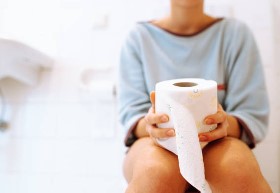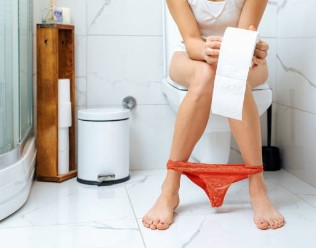If you’re seeking immediate relief from constipation at home, there are several strategies you can try. Here are some options that may provide immediate relief:
- Hydrate: Drink a glass of warm water or herbal tea. Staying hydrated helps soften the stool and facilitates bowel movements.
- Fiber-rich foods: Eat foods high in fiber, such as fruits (e.g., prunes, apples, berries), vegetables (e.g., broccoli, spinach, carrots), and whole grains (e.g., oats, brown rice, whole wheat bread). Fiber adds bulk to the stool and promotes regular bowel movements.
- Prune juice: Prune juice is known for its natural laxative properties. Drink a small glass of prune juice to help stimulate bowel movements.
- Warm liquids: Enjoy warm liquids like herbal tea, coffee, or warm water with lemon. These can help relax the muscles in the intestines and promote bowel movements.
- Exercise: Engage in light physical activity, such as walking or gentle stretching. Exercise stimulates the muscles in the digestive tract and can help relieve constipation.
- Abdominal massage: Gently massage your abdomen in a circular motion, starting from the lower right side and moving clockwise. This can help stimulate the intestines and promote bowel movements.
- Squatting position: If possible, try elevating your feet on a small step stool or using a squatting device to simulate a squatting position while on the toilet. This position can help align the rectum and make it easier to pass stool.
- Over-the-counter options: There are over-the-counter laxatives and stool softeners available, such as osmotic laxatives (e.g., polyethylene glycol) or stimulant laxatives (e.g., bisacodyl). However, it’s important to follow the instructions and consult with a healthcare professional before using them, especially for prolonged or chronic constipation.
Remember, these home remedies are intended for short-term relief. If you have chronic or recurring constipation, it’s advisable to consult with a healthcare professional to determine the underlying cause and develop a long-term management plan.
Is drinking large amount of Water helpful for Constipation?
Yes, drinking an adequate amount of water is generally helpful for relieving and preventing constipation. Here’s why:
- Softens the stool: Water helps soften the stool, making it easier to pass. When you’re adequately hydrated, the water you consume is absorbed into the colon, adding moisture to the stool and preventing it from becoming dry and hard.
- Facilitates bowel movements: Drinking enough water can help stimulate bowel movements and maintain regularity. It helps promote the smooth movement of stool through the intestines, reducing the likelihood of constipation.
- Prevents dehydration: Dehydration can contribute to constipation by causing the body to absorb more water from the colon, leading to harder and drier stools. Drinking enough water helps prevent dehydration and maintains optimal hydration levels.
While there is no specific recommended daily amount of water that suits everyone, a general guideline is to aim for about 8 cups (64 ounces) of water per day. However, individual water needs can vary depending on factors such as age, activity level, climate, and overall health.
It’s important to note that solely increasing water intake may not relieve constipation if dietary fiber intake is inadequate. Fiber and water work together to promote regular bowel movements. Therefore, it’s recommended to combine an increase in water intake with a fiber-rich diet to maximize the benefits for constipation relief.
If you’re experiencing chronic constipation or have concerns about your water intake, it’s advisable to consult with a healthcare professional for personalized advice.




